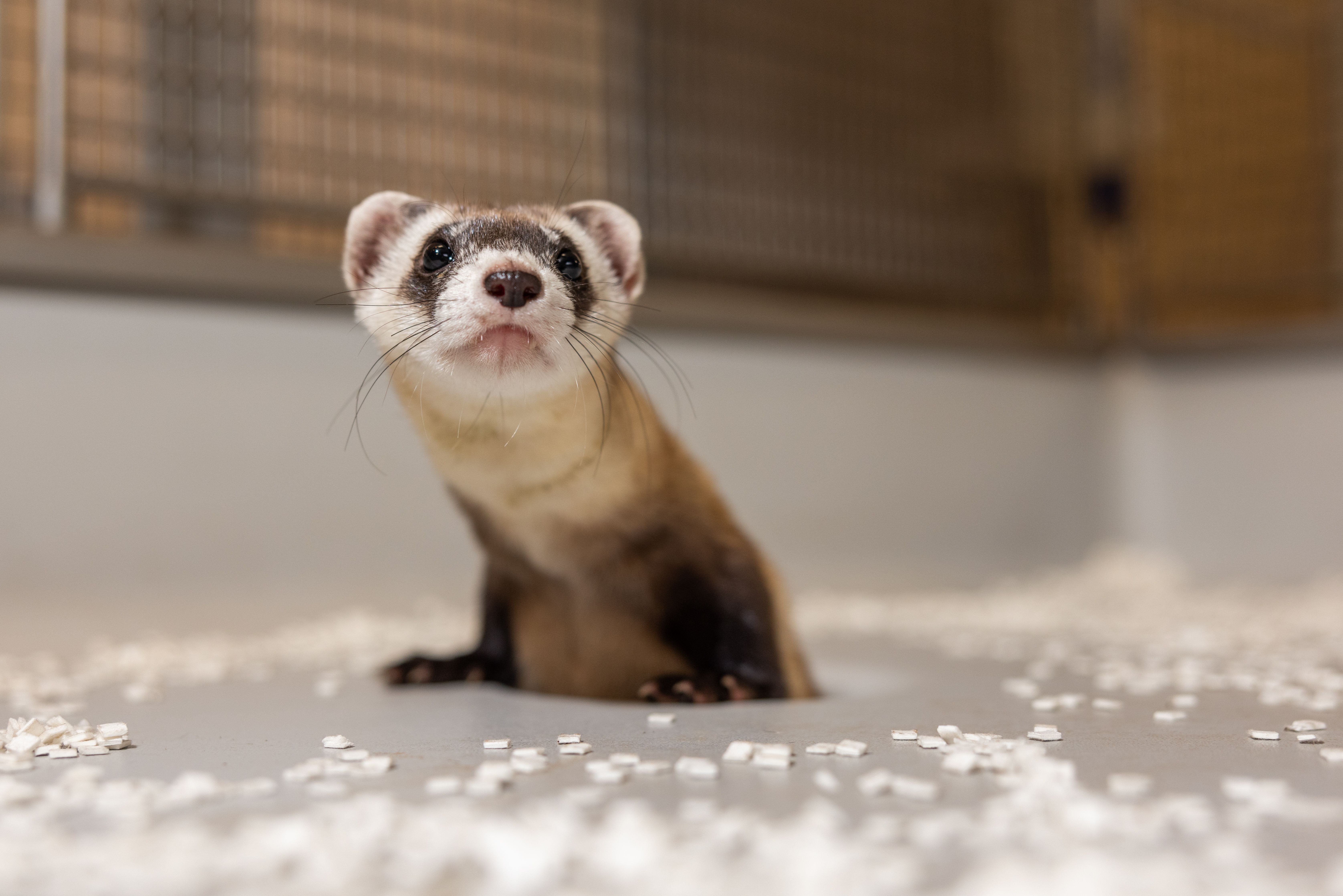
The world’s first cloned black-footed ferret has given birth in a historic first for conservationists.
Antonia the ferret successfully delivered two healthy kits after mating with Urchin, a three-year-old male of the same species, at the Smithsonian National Zoo and Conservation Biology Institute in Front Royal, Virginia, the US Fish & Wildlife Service announced on Friday.
The two kits were lucky to survive as one of their siblings died shortly after Antonia gave birth.
Now three weeks old, the newborns are in “good health and meeting developmental milestones,” the FWS said.
Mom and babies will stay at the Virginia facility to undergo further research, with no plans currently to release them into the wild, officials said.
Paul Marinari, senior curator at the Smithsonian’s NZCBI, said: “The successful breeding and subsequent birth of Antonia’s kits marks a major milestone in endangered species conservation.
“The many partners in the Black-footed Ferret Recovery Program continue their innovative and inspirational efforts to save this species and be a model for other conservation programs across the globe.”

This event marks the first time that a cloned endangered species has successfully produced offspring – a giant leap for genetic diversity in conservation. Cloning technology can allow for future breeding as well as genetic diversity, experts say.
Antonia, a genetically-modified ferret, was cloned from tissue samples collected from Willa, another endangered black-footed ferret whose furry body was preserved in the Frozen Zoo at the San Diego Zoo Wildlife Alliance in 1988.
The black-footed ferret species was thought to be extinct in 1981, but was later rediscovered and has now been given a second chance thanks to conservation efforts. The aim is to work towards recovering the populations of black-footed ferrets on prairie ecosystems in western North America.
This scientific first comes thanks to a collaboration between the US Fish and Wildlife Service and partners including the Smithsonian’s NZCBI, Revive & Restore, San Diego Zoo Wildlife Alliance, ViaGen Pets & Equine, and the Association of Zoos and Aquariums.
It comes one year after a second successfully cloned Przewalski’s horse was declared to be thriving at the San Diego Zoo Safari Park.







